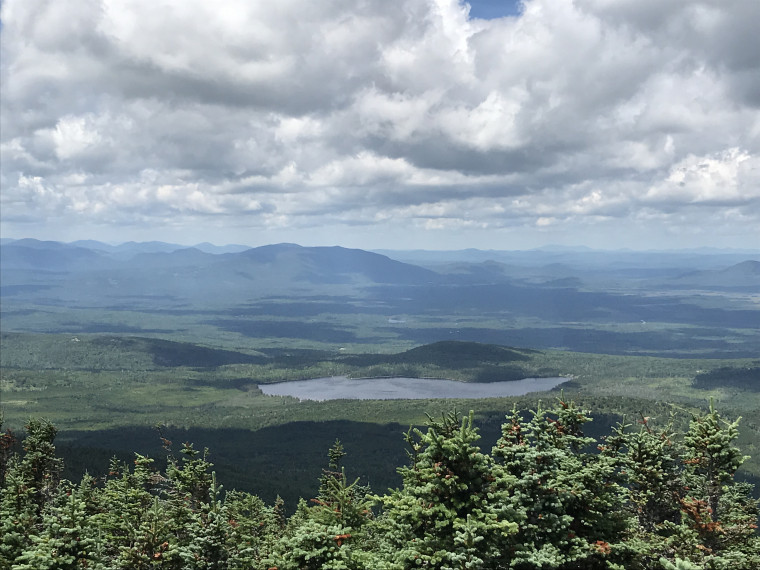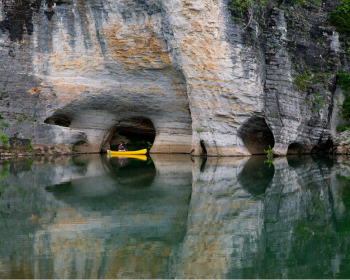Earthrise Helps Conservation Groups Get 11th Hour Halt to Destructive Power Line Through Maine
Open gallery

On January 15th, the construction and logging crews had begun road clearing to reach an area where the Central Maine Power Company was going to cut a 53-mile new corridor for an electrical transmission line through the Western Maine Mountains, one of the most ecologically significant regions in the country. The day before, the Department of Energy had issued a Presidential Permit for the project, and the U.S. Army Corps had already given its OK with a Clean Water Act permit in November.
Within hours, however, the corridor clearing was halted by an injunction issued by the First Circuit Court of Appeals. Earthrise, on behalf of the Sierra Club, the Natural Resources Council of Maine and the Appalachian Mountain Club, had sought the emergency injunction after the District Court in Maine had denied a similar request in December. It is part of a case challenging the Army Corps’ environmental review process for the project under the National Environmental Policy Act and the Clean Water Act. The proposed transmission line is supposed to bring electricity from large hydrodams in northern Canada to Massachusetts - essentially it will be an extension cord stretching through 53 miles of largely unfragmented and undeveloped forests in western Maine, crucial habitat for threatened species like Canada lynx and other iconic Maine animals like native brook trout and American marten.
Although it is billed as “clean” or “green” energy, the electricity generated by the large dams in Canada emits a surprisingly high amount of greenhouse gases, and the dams themselves are incredibly ecologically destructive and poison the traditional food sources of indigenous communities by releasing methylmercury into the waterways. In issuing the project a Clean Water Act permit, the Corps failed to adequately analyze these impacts and others caused by the transmission line itself, including forest and habitat fragmentation, impacts to coldwater trout streams, degradation of spectacular scenery, and increased fire hazards in remote areas of Maine.
“For a substantially similar proposed transmission line through New Hampshire recently, the federal government did an Environmental Impact Statement, which allowed for robust public participation,” says Earthrise attorney Lia Comerford, who is working on the case with Kevin Cassidy. “But in Maine, the Corps chose to short circuit the environmental review process and its finding that a highly controversial project of this scope would not have significant impacts on the environment fell far short of meeting the relevant legal standard.”
For now, construction on the 53-mile new corridor is halted while the First Circuit hears the appeal. Briefing on the case is expected to wrap up on February 24th.
Read Earthrise’ opening brief to the First Circuit here.
Read some press coverage of the case in the First Circuit here and here.
Read a February 7th Op-Ed from a First Nations representative in Canada describing the impacts on his communities of the dams supplying the electricity here.
We’d like to extend a special thanks to all Earthrise students who helped work on this matter including Kaitlynn Danlovich, Maddy Munson, Kassie Kometani, Hillary Fidler, Brad Hoke, and Alex Houston.

Earthrise Law Center is located in Wood Hall on the Law Campus.
MSC: 51
email earthrise@lclark.edu
voice (503) 768-6736
fax (503) 768-6642
Allison LaPlante
Earthrise Law Center
Lewis & Clark Law School
10101 S. Terwilliger Boulevard MSC 51
Portland OR 97219

